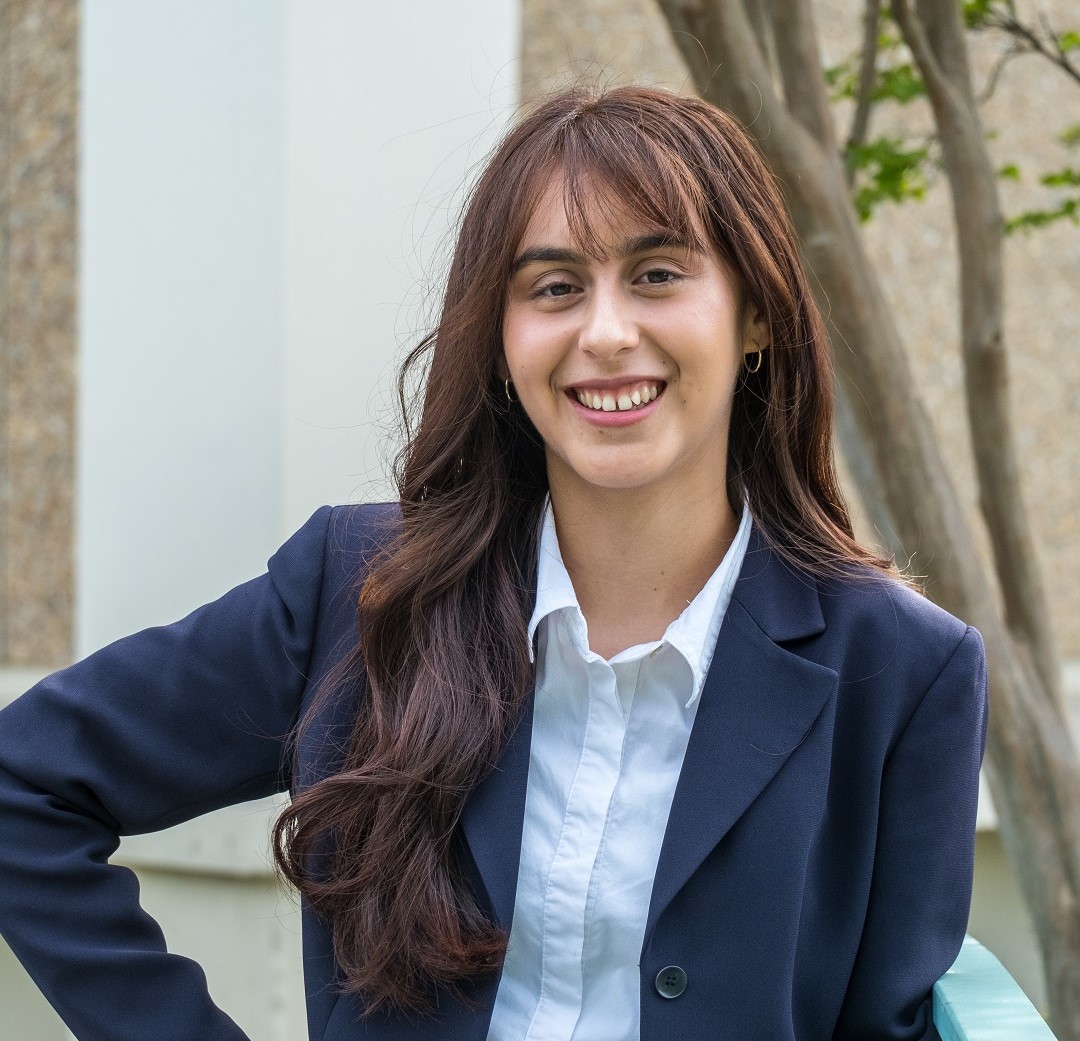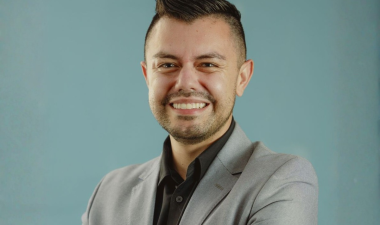
It isn’t always easy to follow in an older sibling’s footsteps, but Edith Herrera is definitely benefiting from being the third of three daughters.
Her eldest sister, Biridiana, paved the way, learning about financial aid and how to be a college student. A 2017 Stan State graduate in kinesiology with a health promotion concentration, she is working on a master’s degree in health promotion at San José State.
Middle sister Fabiola was in the first cohort of Stan State’s McNair Scholars Program, and after graduating in 2019 with a degree in psychology, left for Indiana to pursue a Ph.D. in psychology at Purdue University.
Herrera is choosing her own course, but the sociology major is also a McNair Scholar, joining the newest cohort.
“I was thinking of going to Modesto Junior College,” Herrera said. “I wanted to do my thing. I have them, and I’m very grateful, but I wanted to do it my way. They both went right to Stan State, so I thought I’d go to MJC. I applied and got in, and when I went to Stan when my sister graduated and saw the campus, I realized I wanted to come here.”
Her sisters are her best friends, and they would often discuss their college courses while Herrera was still at Thomas Downey High School. She knew she would pursue a college education.
“I saw how much my parents struggled, and I realized I didn’t want to get a minimum-wage job,” she said. “I knew they came here for a reason, and I wanted to do more if I’m capable. If they did all of this for us, for our future, if I’m capable, I'm going to do as much as I can. It's going to be for me and my parents. I want to make it for them, to be proud of our roots.”
She’s had conversations with her dad about his decision to move to the United States from Mexico. Poverty in his hometown drove him away. He could earn more working in the United States. After her parents married, they moved to California.
Both of Herrera’s parents are from large families, yet her parents had just three daughters.
“He said, ‘I only wanted to have three, because I wasn’t sure I'd be able to feed you, to keep bringing food to the table,’” Edith said, tears forming in her eyes as she remembered what her father once told her. “It’s unreal how much they’ve done, how much they’ve worked, how much they’ve struggled to be here. My mom has told me, ‘I’m nobody in this country.’”
But Herrera knows otherwise. She knows her mother is a proud woman who empowered three daughters to reach the height of education.
Both of Herrera’s parents left school in Mexico after fifth grade, unable to afford the cost. When they saw their daughters graduate from junior high school, it was a cause for celebration. High school was just as exciting, and now to have two college graduates pursuing advanced degrees and a third following in their footsteps is a dream come true.
“I knew I had to do something for them,” Herrera said.
Herrera doesn’t have a clear career path. Yet.
“In high school everybody said I’d be a great teacher,” she said. “They said, ‘You’re so kind, you’re always smiling, you’re spontaneous.’ I thought I’d like that.”
She registered as a liberal studies major, but it didn’t take long for her to switch to sociology after briefly considering criminal justice.
While she was in high school, the #MeToo movement launched. There was discussion about it, and whether teachers should have guns at school. Her eldest sister took an introductory sociology class. One took a gender and stereotyping class, and Herrera found that fascinating.
“I wanted to learn more,” she said. “I was like, ‘This is a thing? I love this.’ I thought about becoming a teacher, but I took intro to sociology. I took psychology and history classes and criminal justice, but my road took me back to sociology. I took a gender and power course with Jennifer Whitman, and I loved that. I learned about masculinity, different levels of it and different hierarchies. It started clicking for me. All of this is about me and my heritage. I decided I was going to study it and see what happened. So far, I love it.”
A political science course on activists, and how that relates to sociology expanded her perspective and further convinced her she was on the right track.
“I don’t know what I want to do, but I hope McNair helps me with that,” Herrera said.
The McNair Scholars Program does help refine future goals and identify options.
“I have in mind to work with children and give them the resources I had in high school,” Herrera said. “With AVID (Advancement Via Individual Determination, a 7-12 program to prepare students for college), you have to have a certain grade point average. I want this to be for everyone. I want to focus more on middle school and elementary school students to groom them, especially if children are first born of low income, are first generation, so opportunity doesn’t start at high school. I want to be that guide they need. That’s what I want to do. I’m not sure what that would fall into, but hopefully it’s something I can find.”
Herrera and her sisters are examples of the possibilities.
“I want to help others realize it’s hard, but it’s worth it,” she said. “My sister had it harder, because she had to figure it out. If you are passionate and willing to do it, there is a possibility. There is help. I want to make it easier for others.”


